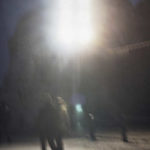We run our website the way we wished the whole internet worked: we provide high quality original content with no ads. We are funded solely by your direct support. Please consider supporting this project.
How can you believe Matthew’s report about the Jewish cover up of the resurrection?
Question: In Matthew it’s reported that Jewish authorities tried to cover up the resurrection of Jesus by saying the disciples stole the body while the guards were sleeping. I don’t buy it. How would Matthew know about this story, since it was a secret conversation the authorities had with the guards? And how could they ask the guards to claim they’d fallen asleep since such a crime would have been punishable by death? The story just doesn’t fly.
Answer: Here’s the account your referring to.
Matt. 28:12-15: When the chief priests had met with the elders and devised a plan, they gave the soldiers a large sum of money, telling them, “You are to say, ‘His disciples came during the night and stole him away while we were asleep.’ If this report gets to the governor, we will satisfy him and keep you out of trouble.” So the soldiers took the money and did as they were instructed. And this story has been widely circulated among the Jews to this very day.
It seems to me the text answers your question. Matthew could have easily known about the story since it was “widely circulated.” (Or he could have known about it by divine inspiration, if that was required). The guards ordinarily would have gotten in deep trouble for sleeping on the job, except that in this case the Jewish authorities promised to use their influence to “keep [them] out of trouble.” What the Jewish authorities didn’t want was the guards going around telling people what they actually saw!
What’s most interesting, I think, is that this lie is premised on the assumption that the tomb was in fact empty. What this tells us is that when Matthew wrote his Gospel (usually dated 70 to 80 A.D., but I would argue for a pre-70 A.D. date), those who were hostile to Christianity (and there were many) didn’t deny there was any empty tomb. They just offered a counter explanation as to how it became empty. If you don’t believe their counter-explanation, you have to come up with your own. And the best one available, I submit, is the one the disciples themselves offer: Jesus actually rose from the dead.
Category: Q&A
Tags: Jesus, Q&A
Topics: Biblical Reliability
Related Reading

Why do you claim that everybody, whether they know it or not, believes that the future is partly open?
Whatever a person may theoretically believe, they act like the future is partly open. For, as a matter of fact, there’s no other way to act. Think about it. Every time we deliberate between options on the way toward making a decision, we assume (and we have to assume) that a) the future consists of…

How do you respond to Matthew 26:36?
At the last supper Jesus said to Peter, “Truly I tell you, this very night, before the cock crows, you will deny me three times.” This is probably the most frequently quoted verse by defenders of the classical understanding of God’s foreknowledge against the open view. How, they ask, could Jesus have been certain Peter…

The Holy Alternative
God is holy because he’s utterly “other” and distinct from anything in the created world. Certain objects are called holy because they’re set apart from common objects, having been consecrated to God for a special purpose. And God’s people are called to be holy by virtue of the radically different kind of life we live.…

Should churches have armed security guards?
Question: Recently (December, 2007) a security guard at New Life Church in Colorado Springs shot and apparently killed a man who was shooting people in the church parking lot. The pastor (Brady Boyd) hailed her as a “real hero.” Do you think churches should have armed security guards and do you think the pastor was…

What is the significance of Jeremiah 3:6–7?
Regarding Israel, the Lord says “I thought, ‘After she has done all this she will return to me’; but she did not return.” If the future is exhaustively settled in God’s mind, the meaning of this verse is unclear. How could God really think that something was going to happen if he foreknew with absolute…

What is the significance of Genesis 2:19 ?
“So out of the ground the Lord God formed every animal of the field and every bird of the air, and brought them to the man to see what he would call them; and whatever the man called every living creature, that was the name.” God wanted Adam to have authority over the animal kingdom…
